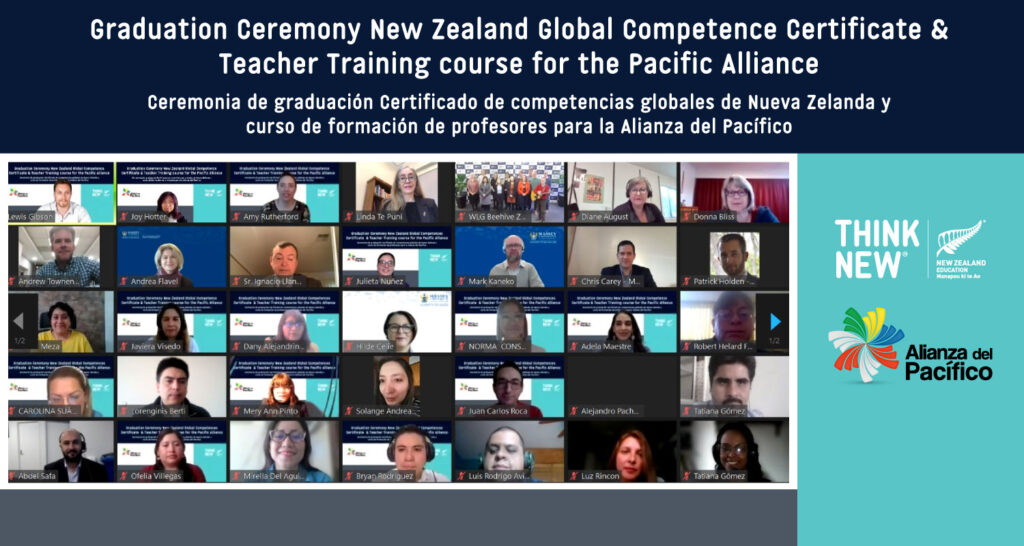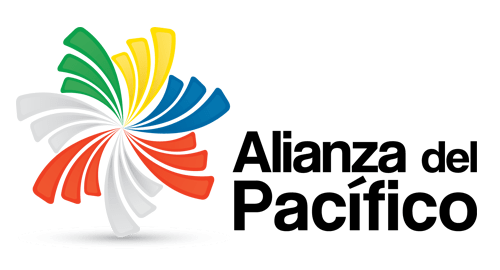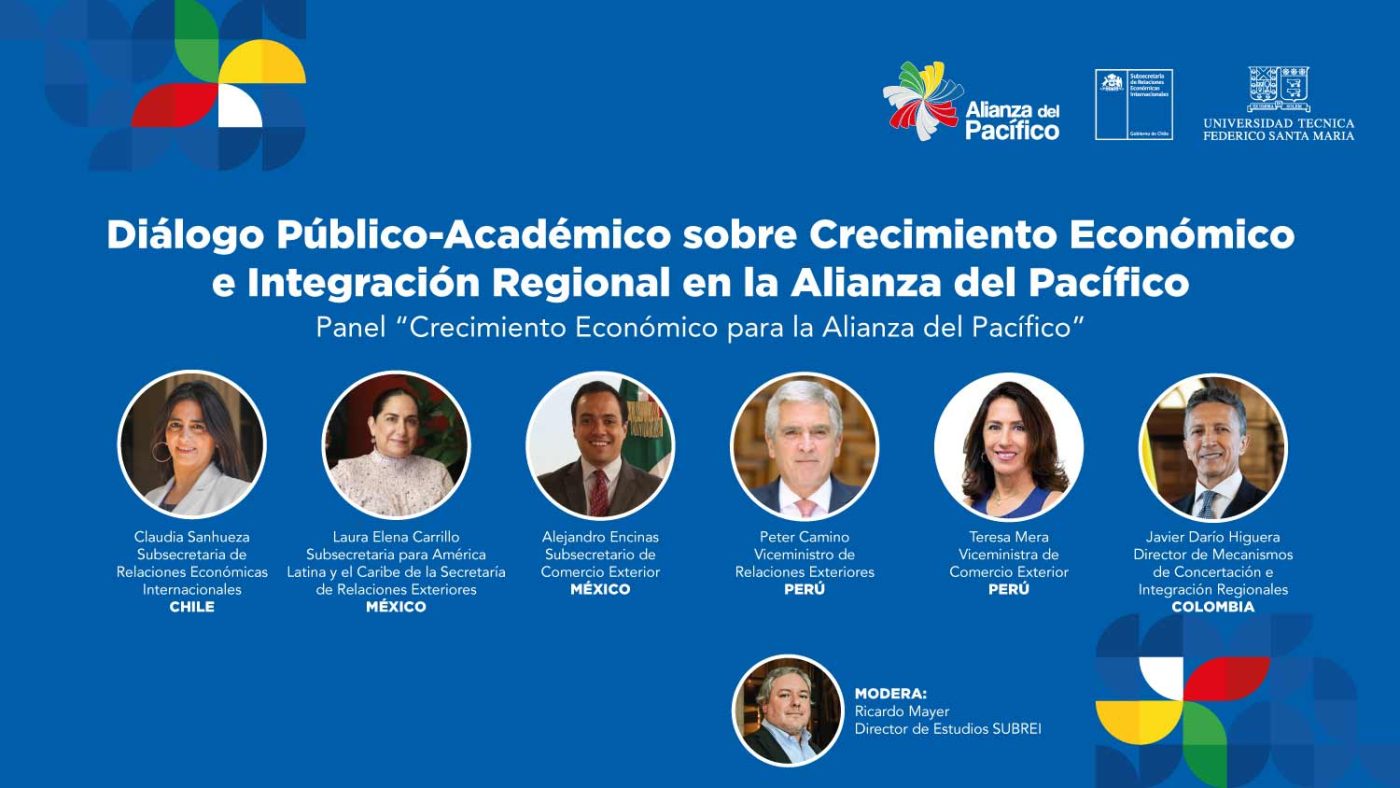April 28, 2021 – The Pacific Alliance, a regional integration mechanism that brings together Chile, Colombia, Mexico and Peru, with the purpose of promoting greater growth, development and competitiveness of the economies and advancing the free movement of goods, services, capital and people, is celebrating its tenth anniversary today.
In 10 years of history, there have been many achievements that have aroused great interest at the international level. Evidence of these are its 59 Observer States and 6 candidate countries for Associated States (Australia, Canada, South Korea, Ecuador, New Zealand and Singapore). Likewise, in 2013 the countries agreed to create the figure of shared diplomatic Headquarters in nine countries in Africa, Asia and Europe, which has strengthened collaboration between them.
The Pacific Alliance has not only worked bilaterally with countries such as Canada, Spain and Japan, with whom it has joint cooperation declarations, but has also created work agendas with regional integration blocs such as the Association of Southeast Asian Nations (ASEAN), the European Union, the Organization for Economic Cooperation and Development (OECD), and the Eurasian Economic Commission.
In addition, the work of the Alliance has always had the support of the private sector, through the Business Council of the Pacific Alliance (CEAP) and the support of international organizations such as the Inter-American Development Bank (IDB), the World Bank, the Economic Commission for Latin America and the Caribbean (ECLAC), the Development Bank of Latin America (CAF) and the Organization for Economic Cooperation and Development (OECD).
Main achievements in 10 years of existence
Each of the 30 technical bodies of the Pacific Alliance has focused its work on the fulfillment of the Strategic Vision 2030 to achieve a more integrated, more global, more connected and more citizen-oriented Alliance, and one that encourages countries to develop in a solid, inclusive and sustainable manner.
So, in these 10 years, these are some of the main achievements:
-
Thanks to the creation of the Student and Academic Mobility Platform and the Pacific Alliance Youth Volunteering program, more than 3,000 young people from the four countries have benefited.
-
More than 180 export, investment, and tourism promotion activities have been carried out, with more than 3,500 participations of companies from the bloc in events such as the tourism and business macro-rounds and forums of leading businesswomen and entrepreneurship and innovation. These events have generated close to US$1 billion in business opportunities.
-
With the entry into force of the Additional Protocol, 92% of the tariff universe was released in a common and immediate manner, which also helps to promote productive linkages in the region. It is expected to cover almost 100% of tariffs by 2030.
-
91,267 electronic phytosanitary and origin certificates have been exchanged between all the countries of the Pacific Alliance, thanks to the interoperability of the Foreign Trade Single Windows, which save costs and time and facilitate business development among entrepreneurs by allowing them to process their certificates digitally.
-
The Entrepreneurial Capital Fund has benefited startups with financial support for their growth and internationalization.
-
Since 2012, short-term tourism and business visas between the four countries have been abolished.
-
Agreements have been signed that help to facilitate the mobility of nationals, such is the case of the Vacation and Work Program Agreement, and the Agreement on Cooperation Measures on Consular Assistance.
-
In 2019, the Declaration on the Sustainable Management of Plastics was signed, which reflects the importance of developing and implementing new policies to promote the integrated management of this waste and reduce its presence in ecosystems. For its implementation, a roadmap was adopted in 2020.
-
The Pacific Alliance has an ecosystem of entrepreneurship and innovation with networks of accelerator agencies, investors, of innovation and technology transfer.
-
The Pacific Alliance is working on the implementation of a Social Observatory through which the needs of the most vulnerable population are identified and joint policies can be developed.
-
The promotion of gender equality and the permanent incorporation of women in the economy is fundamental for the Pacific Alliance. For this reason, the gender approach has been incorporated into the different initiatives of the technical groups; training programs have been developed for businesswomen and entrepreneurs in the region, in order to strengthen their business skills, create networks of contacts and expand their export capacity; and in 2020 the Presidential Declaration for Gender Equality was signed, which is expected to begin its implementation in 2022.
The pandemic does not stop the Pacific Alliance
In a context as challenging as the Covid-19 pandemic, the Pacific Alliance managed to create a joint work plan to reduce the impact on the citizens and economies of the four countries. These are some of the initiatives:
-
We will boost the economic reactivation of the bloc through 30 joint promotion actions that will impact around 2,500 companies in the Pacific Alliance countries. We will promote e-commerce, public procurement, trade in services, foreign direct investment and sustainable tourism.
-
Implementation of the acceptance of copies of non-digital certificates of origin in order to benefit from preferential tariff treatment to prevent the movement of people.
-
With the support of the IDB, the Pacific Alliance Digital Platform is being created to strengthen the digital skills of SMEs.
-
Holding of the Pacific Alliance Women’s Film Forum in May 2020.
-
Launch of the “COVID Challenge” call (with support from the IDB). A total of 396 technological proposals aimed at alleviating the impacts of Covid-19 in the areas of health, community and education were received, from which 8 projects were selected.
-
In the eighth edition of the LAB4 Entrepreneurship and Innovation Forum, held 100% digitally, businesses for USD 22 million were projected and 37 service exporting companies and 42 startups from the 4 countries participated.
-
The VI Tourism Macro-round, held in a 100% virtual format, brought together 189 companies in 1,033 meetings that provided an ideal scenario for the development of business with an expectation of USD 6.7 million, of which USD 1.2 million correspond to multi-destination sales.
-
In 2020, three virtual business macro-rounds were held with the United Kingdom, Central America, East Asia and Oceania. 276 exporters from the bloc participated and were able to make contact with close to 150 importers from these regions of the world. A total of US$105 million in business was registered, as a result of immediate agreements (concluded at the same meeting) for US$6.4 million, as well as 12-month business projections for US$98.6 million.
PACIFIC ALLIANCE PPT COMMUNICATIONS




